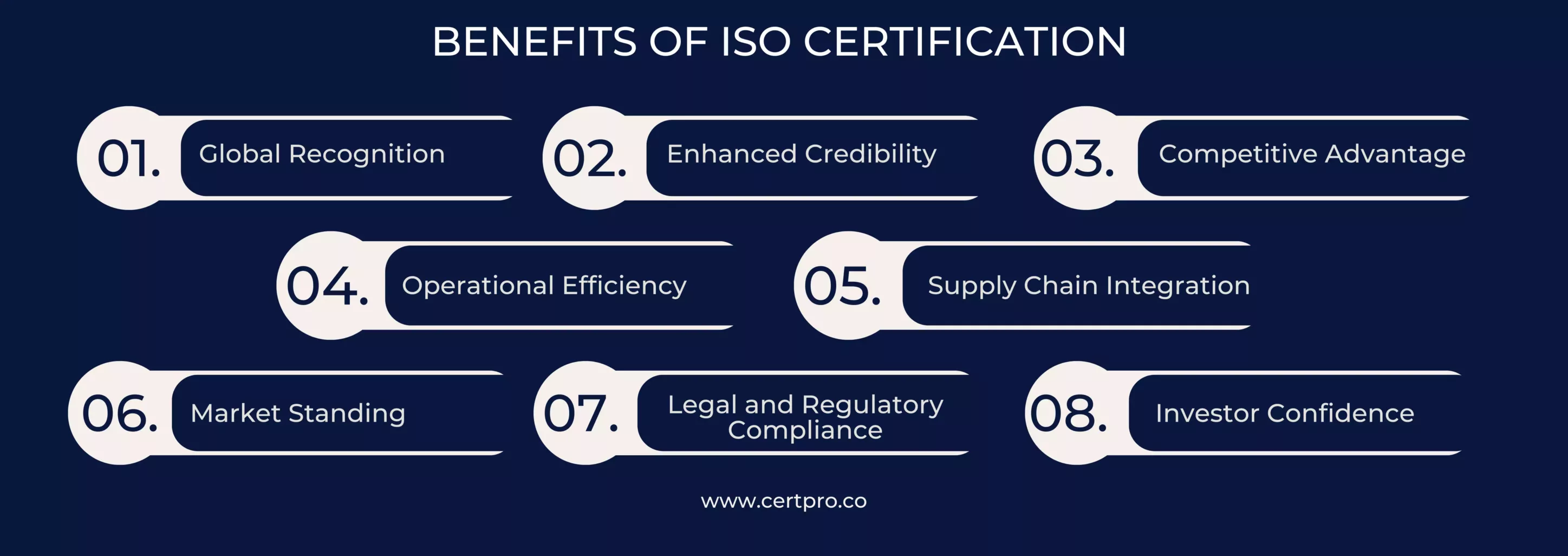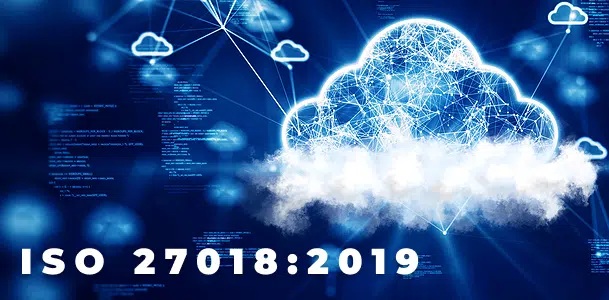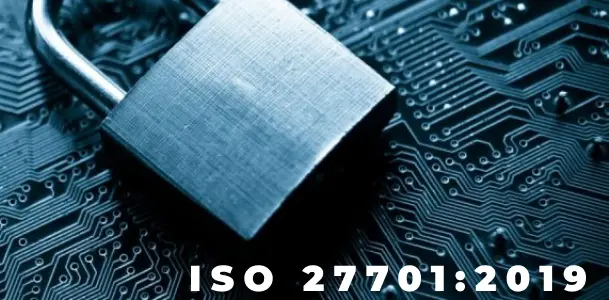indonesia
ISO CERTIFICATION IN INDONESIA
Indonesia is a large archipelagic country in Southeast Asia with a variety of geological features, such as long coasts, volcanoes, and tropical rainforests. As an impartial authority that establishes standards to guarantee the quality, safety, and effectiveness of goods and services offered by companies and organizations, ISO (International Organization for Standardization) certification is essential in Indonesia. In order to ensure the efficacy and efficiency of their products and services, companies in Indonesia must obtain ISO certification. Indonesia occupies a critical location in the Pacific Ring of Fire, making ISO certification essential for resolving safety issues with seismic and volcanic activity. In this geologically active area, the certification functions as a risk-reduction tool.
Indonesia, having the biggest economy in Southeast Asia, depends on a number of industries, including mining, manufacturing, services, and agriculture. An important factor in guaranteeing the effectiveness and caliber of operations in various sectors and tremendously boosting the country’s economy is ISO certification. The service industry, which makes up a significant portion of Indonesia’s GDP, highlights how crucial ISO certification is to upholding standards. Minerals, coal, natural gas, palm oil, and other plentiful natural resources are essential to Indonesia’s economic development. To guarantee that goods fulfill international standards for quality and safety and to promote international trade, ISO certification is crucial in these industries.
Investments in research and development are soaring across the nation, especially in the fields of technology, mining, and aerospace. Maintaining international standards in these domains, particularly in the creation of cutting-edge ideas and technology, requires ISO certification. Indonesia is dedicated to education and actively seeks to raise literacy rates and advance higher learning. The country underscores its dedication to the education sector by emphasizing the importance of ISO standards in educational processes, as reflected in its substantial allocation of GDP to this sector. ISO certification ensures compliance with international standards and boosts Indonesia’s competitiveness in the global market, making it essential for companies operating in a variety of sectors. The certification promotes innovation and economic growth in Indonesia by acting as a standard for efficiency, quality, and safety.
WHY ISO CERTIFICATION IN INDONESIA?
Obtaining ISO certification is critical for Indonesian businesses looking to maximize productivity, guarantee excellence, and foster trust. The ISO accreditation attests to the organization’s unwavering dedication to maintaining strict standards throughout several industries in Indonesia. The ISO 9001 certification is particularly noteworthy as it highlights the importance of quality management and enables Indonesian companies to provide dependable, customer-focused goods and services. The function of ISO 14001 in addressing environmental management is equally important; this is an important factor for Indonesia, which is trying to achieve sustainable development in the midst of fast industrial expansion. The relevance of ISO certification, especially ISO 27001, in protecting sensitive data in the ever-changing digital world is increasing as Indonesia undergoes a digital revolution.
These certifications are especially important in Indonesia’s diverse market since they boost consumer trust and give companies a competitive advantage on an international scale. The ISO accreditation represents a commitment to high standards, increased product dependability, and waste reduction. Additionally, it simplifies procedures, which promotes higher output and lower expenses. Numerous ISO certification bodies are based in Indonesia and provide certification services, advice, and assessments to help companies successfully complete the certification process. Ultimately, enterprises in Indonesia that have obtained ISO certification are better equipped to build strong frameworks, conform to international standards, and actively promote security, sustainability, and excellence in order to actively support national progress.
UNDERSTANDING ISO CERTIFICATION IN INDONESIA
Obtaining ISO 9001 certification in Indonesia is a testament to a business’s commitment to providing dependable and excellent goods and services. With Indonesia’s industrial landscape evolving, the ISO 14001 standard—which emphasizes sustainable growth and addresses environmental concerns—is becoming more and more important. An essential component of ISO 27001 is data security, which is in line with Indonesia’s current digital transformation efforts. The diversified Indonesian market benefits greatly from ISO certification, which raises customer confidence and makes it possible for businesses to compete internationally. Beyond demonstrating compliance with strict standards, ISO certification improves product reliability by streamlining workflows, cutting waste, and getting rid of inefficiencies.
Related Links
SOC 2 in Indonesia
ISO 27701 in Indonesia
GDPR in Indonesia
ISO 27018 in Indonesia
HIPAA in Indonesia
CCPA in Indonesia
PIPEDA in Indonesia
ISO 17025 in Indonesia
ISO 13485 in Indonesia
CE Mark in Indonesia
GDP in Indonesia
GLP in Indonesia
ISO 9001 in Indonesia
ISO 14001 in Indonesia
ISO 45001 in Indonesia
ISO 22000 in Indonesia
HACCP in Indonesia
ISO 22301 in Indonesia
ISO 21001 in Indonesia
ISO 41001 in Indonesia
ISO 20000-1 in Indonesia
Companies in Indonesia are able to create strong frameworks that adhere to international best practices thanks to ISO certification. Prioritizing quality, sustainability, and security benefits businesses individually and enhances Indonesia’s reputation abroad. Through ISO certification, the International Organization for Standardization (ISO) formally acknowledges that a business’s management system, practices, products, or services fulfill set requirements. ISO is an internationally recognized independent organization that creates and distributes standards to guarantee effectiveness, safety, and quality in a range of industries. The certifying organization conducts regular surveillance audits to ensure continuous adherence to the ISO standard. Businesses that have earned their ISO certification frequently acquire a competitive advantage by showcasing their dedication to continuous improvement and quality. The ISO 14001 accreditation is consistent with Indonesia’s focus on environmental management and sustainability. Customer requirements are often highlighted in ISO standards, which improve customer retention and satisfaction. ISO accreditation is important for Indonesian suppliers in international supply chains. An essential component of ISO certification is continuous development, which helps Indonesian businesses maintain their competitiveness and streamline operations. In the end, ISO certification improves a company’s reputation by confirming compliance with global quality standards, which builds trust with customers and partners.

THE ESSENTIAL STEPS OF THE ISO CERTIFICATION PROCESS IN INDONESIA INCLUDE THE FOLLOWING:
Preparation and Awareness: Start by making sure you fully understand the particular ISO standard that applies to your sector and company objectives. Learn about the benefits, requirements, and steps involved in putting the standard into practice.
Planning: Formulate a thorough plan outlining the actions required to bring your operations into compliance with the ISO standard. To guarantee efficient execution, create an implementation timeline and designate roles properly.
Documentation: Create or update the necessary paperwork, including policies, procedures, work instructions, and records, to make sure they comply with the requirements of the ISO standard.
Implementation: Incorporate your organization’s documented processes and procedures seamlessly throughout the entire structure. To ensure a successful implementation, closely monitor operations and make any necessary adjustments as needed.
Internal Audit: Perform an internal audit to identify any non-conformities and evaluate the effectiveness of the implemented processes. Address these issues promptly and make the necessary adjustments.
Management Review: Conduct a management review to assess the application of the ISO management system in terms of its relevance, effectiveness, and progress. Determine whether any improvements or alterations are required for a better experience.
Certification Body Selection: Select a trustworthy certifying organization to carry out the external evaluation. In order to determine whether you are prepared for certification, the certifying authority will carefully examine your policies, procedures, and execution.
Stage 1 Audit (Document Review): The preliminary evaluation of your paperwork and procedures by the certification body confirms that they meet ISO standard requirements.
Stage 2 Audit (On-Site Audit): The certification authority performs an on-site audit to verify the use of your ISO management system and assess how well your processes correspond to industry standards.
Certification Decision: Based on the audit findings, the certifying authority decides whether to award certification. Your company will receive an ISO certificate if it complies with the standard’s requirements.
Surveillance Audits: The certifying organization conducts regular surveillance audits to ensure continuous adherence to the ISO standard. These audits, which usually take place once a year, confirm continued adherence to the set criteria.
Strict adherence to the certification organization’s requirements and constant communication with them are crucial during the entire process.
POPULAR ISO STANDARDS IN INDONESIA
The many ISO standards that raise the standard for effectiveness, security, and quality have a big impact on Indonesia’s varied industries. These standards include ISO 14001, ISO 17025, ISO 13485, ISO 9001, ISO 45001, ISO 27001, ISO 22000, and more that are noteworthy. The Indian and Pacific oceans encircle Indonesia, which is located in both Oceania and Southeast Asia.
The ISO 9001:2015 standard is well-known for emphasizing the application of quality management systems to guarantee the reliable provision of products and services on a regular basis. In keeping with Indonesia’s dedication to sustainability, ISO 14001:2015 covers environmental management systems and encourages moral behavior in the midst of the country’s continuous industrial growth. The significance of ISO 27001:2013 has increased in light of Indonesia’s ongoing digital transformation, especially with regard to improving data security. This standard helps businesses protect sensitive data, which supports Indonesia’s efforts in digital security. To improve road safety, ISO 26262 is essential to the automotive industry since it guarantees the functional safety of electrical and electronic systems. ISO 45001:2018 emphasizes occupational health and safety, which is consistent with Indonesia’s dedication to the welfare of its labor force. ISO 22000:2018 covers food safety management systems in the food business to protect consumers. ISO 50001:2018 places a strong emphasis on energy management, which is consistent with Indonesia’s commitment to sustainable energy practices.
These ISO standards complement Indonesia’s attempts to comply with regulations, progress technology, and achieve development goals. They play a crucial role in establishing global recognition and improving industry processes. These ISO standards complement Indonesia’s attempts to comply with regulations, progress technology, and achieve development goals. They play a key role in promoting industry standards and getting Indonesian businesses recognized abroad.
BENEFITS OF ISO CERTIFICATION IN INDONESIA
ISO certification gives businesses in Indonesia a competitive edge and increases customer satisfaction by guaranteeing that goods and services meet international quality standards. Furthermore, by ensuring proper process execution, ISO certification reduces the chance of business failure. For Indonesian enterprises, the ISO certification process fosters improved growth, credibility, and operational excellence, all of which are significant benefits. ISO certification is a way for a company to become more marketable by proving that it follows international standards, which in turn increases customer confidence. This increased dependability boosts client loyalty and retention, which enhances the brand recognition of the business.
Indonesia can more easily enter international markets thanks to ISO certification, which lowers trade obstacles, creates a recognized quality benchmark, and simplifies the process of entering international trade. This is particularly beneficial for Indonesian companies looking to expand internationally and investigate global commercial prospects. Furthermore, Indonesian businesses with ISO certification have a competitive advantage in the market. With this certification, businesses set themselves apart from rivals and draw in potential customers and business partners with their dedication to effectiveness, excellence, and ongoing development.
- Global Recognition: The global recognition of ISO certification creates opportunities for Indonesian businesses, facilitating international trade and expanding their market presence abroad. This acknowledgement provides Indonesian companies with a substantial competitive advantage, allowing them to conduct business credibly and reliably in foreign markets.
- Enhanced Credibility: It raises the credibility and confidence of partners, investors, and clients on a national and worldwide level.
- Competitive Advantage: Businesses holding ISO certification stand out from their competitors by demonstrating their commitment to excellence and quality.
- Operational Efficiency: Enhancements in processes contribute to an overall improvement in operational effectiveness.
- Supply Chain Integration: For many global supply chains to function, ISO accreditation is essential, as it opens doors to international partnerships.
- Market Standing: Obtaining ISO certification improves a business’s standing in the marketplace, draws in new customers, and creates additional business prospects.
- Legal and Regulatory Compliance: ISO certification makes following local, state, federal, and international legislation easier.
- Investor Confidence: Investor confidence is increased when a commitment to best practices is shown.
The capacity to excel in a competitive setting, instill trust in international markets, uphold ethical and sustainable business practices, and consistently enhance operations for enduring success is all facilitated by ISO certification in Indonesia.

ISO CERTIFICATION BODIES IN INDONESIA
The National Accreditation Body for certification bodies in Indonesia is the Komite Akreditasi Nasional (KAN). Various certification bodies in Indonesia have the authorization of KAN to issue ISO certification. These accredited entities conduct audits of businesses to verify their adherence to different ISO standards. Here are some of the prominent ISO certification bodies in Indonesia:
PT SAKTI INDONESIA: PT Sakti Indonesia Certification, an accredited Management System Certification Body (MSCB) by the National Accreditation Committee (KAN), provides external recognition for organizations’ management systems. Our services focus on optimizing internal processes through system maturity assessments and enhancing the competency and capacity of human resources within the organization. Similar to BQSR, we conduct thorough audits globally with a professional team of auditors and technical experts to ensure alignment with established criteria, including ISO standards. Organizations seeking certification should prioritize understanding our specialization and accreditation scope for accurate and up-to-date information.
Qualita Manajemen Sertifikasi: KAN (National Accreditation Committee) accredits QM Certification, a certification body nationally recognized.Acknowledged for our expertise, we specialize in assessing compliance with standard requirements, including ISO 9001 for Quality Management Systems, ISO 14001 for Environmental Management Systems, ISO 22000/HACCP for Food Safety Management Systems, ISO 45001 for Occupational Health and Safety Management Systems, ISO 27001 for Information Security Management System, ISO 13485 for Medical Equipment Management System, and ISO 50001 for Energy Management System. As a National Certification Institute, we comprehend our client’s cultures, focusing on advancing and improving management systems. Our certifications cover ISO standards like ISO 9001 and ISO 14001, with additional bespoke assessment schemes designed to establish recognized standards company-wide, industry-wide, nationally, or internationally. We take pride in our responsive, friendly, and pragmatic approach.
Chesna Certification: Chesna Certification, serving as a certification body, inspires confidence among all stakeholders by verifying that an organization’s products, services, and processes comply with specified requirements. Certification is pivotal in ensuring that the organization has implemented a system aligned with relevant requirements and organizational policies. Moreover, it facilitates adherence to legal regulations and establishes organizational recognition on both national and international fronts. For organizations pursuing certification, it is imperative to comprehend the certifying body’s specialization and accreditation scope. To gain the most current information, it is advisable to consult official sources, directly engage with Chesna Certification, or refer to accreditation bodies.
LSSML PT Equality Indonesia: PT EQUALITY Indonesia (EQUALITY Certification) is a corporation that provides testing, inspection, and certification services. With a firm dedication to ideals such as equality, transparency, independence, autonomy, impartiality, and egalitarianism, we smoothly combine an entrepreneurial mindset. With our committed approach, you can confidently advance, supported by services that uphold the highest standards. As a dependable partner, we manage the domains of testing, inspection, and certification while upholding principles of justice, transparency, and autonomy. Allow us to accelerate your initiatives while benefiting from our comprehensive services, which reflect a harmonious blend of expertise and entrepreneurial enthusiasm.
LSSM PT IRQA Indonesia: LSSM PT IRQA Indonesia is a certifying agency or institution in Indonesia. LSSM stands for Lembaga Sertifikasi Sistem Manajemen, which translates as Management System Certification Body. PT IRQA denotes that it is a private limited corporation. The organization is expected to provide management system certification services, which may encompass quality management, environmental management, occupational health and safety, and other applicable systems. It operates in Indonesia and can evaluate and certify organizations based on predetermined standards and criteria.
INDUSTRIES THAT BENEFIT FROM ISO CERTIFICATION IN INDONESIA
As ISO certification continues to provide significant benefits to various industries in Indonesia, many local businesses understand its critical role in assuring success. These certificates are more than just status symbols; they demonstrate a strong commitment to quality, security, and sustainability. ISO 9001 certification improves product quality and operational efficiency in the manufacturing industry, encouraging a culture of continuous improvement and delivering a competitive advantage. ISO 27001 accreditation is critical for Indonesia’s IT business, enhancing data security in an age where information is extremely valuable. Similarly, ISO/TS 16949 certification enhances Indonesia’s global reputation in automobile manufacturing by ensuring vehicle durability and safety.
These certifications have an impact on more than just individual enterprises, influencing sustainable construction methods and environmentally friendly building technologies. ISO consultants in Indonesia play an important role in advising organizations through the certification process and ensuring ISO compliance. The adoption of ISO 27001 certification in Indonesia, SOC 2 certification in Indonesia, GDPR certification in Indonesia, HIPAA certification in Indonesia, and PIPEDA certifications demonstrates Indonesia’s commitment to data security, privacy, and healthcare standards. Pursuing ISO certification in Indonesia demonstrates a dedication to both societal and environmental well-being and corporate success. The involvement of ISO consultants demonstrates the strategic direction required by businesses to properly traverse the certification landscape.
FAQ
What is ISO certification, and why is it important in Indonesia?
ISO certification in Indonesia confirms adherence to international standards, ensuring quality, safety, and effectiveness in goods and services. It is crucial for operational efficiency, market competitiveness, and global trust.
How can a company in Indonesia obtain ISO certification?
Companies in Indonesia can obtain ISO certification by following processes such as preparation, applying ISO standards, internal audits, selecting a certification body, and undergoing external audits.
What benefits does ISO certification offer in Indonesia?
ISO certification in Indonesia provides benefits such as enhanced reputation, improved market access, operational efficiency, customer trust, regulatory compliance, and alignment with sustainable practices.
Why is ISO certification important for industries in Indonesia?
ISO certification is vital for various industries in Indonesia, as it ensures adherence to global standards, boosts competitiveness, and fosters innovation and economic growth.
How do ISO consultants contribute to the certification process in Indonesia?
ISO consultants in Indonesia guide businesses through the certification journey, ensuring compliance with ISO standards and providing strategic advice for effective navigation.
AI SECURITY: UNDERSTANDING THREATS AND COMPLIANCE SOLUTIONS
Artificial Intelligence continues to grow and become more relevant in workplaces. Customers widely use it to handle and market products. Organizations are desperately using AI for their businesses and ensuring that the AI systems comply with the new rules and...
FINDING THE RIGHT AUDITOR: THE ULTIMATE CHECKLIST
Selecting an auditor to implement industry-specific rules and regulations is vital. The choice can influence the company’s growth and financial health. Therefore, choosing the right auditor offers valuable insights and ensures compliance and economic stability. You...
HOW DOES THE NIST CYBERSECURITY FRAMEWORK FUNCTION, AND WHY IS IT IMPORTANT?
Emerging cyber threats make cybersecurity an essential consideration for organizations handling and managing data. In this regard, the NIST cybersecurity framework applies to improving your cybersecurity program. It is a set of guidelines that helps improve your...












